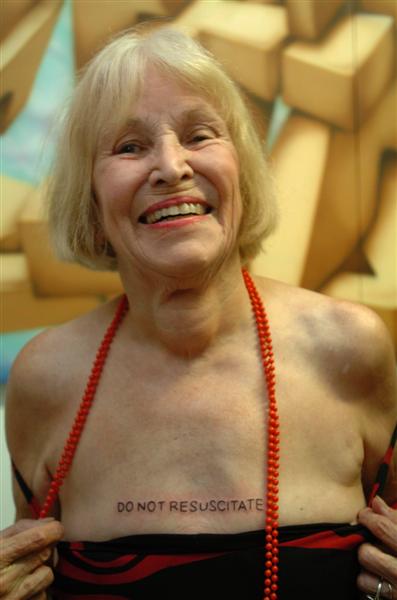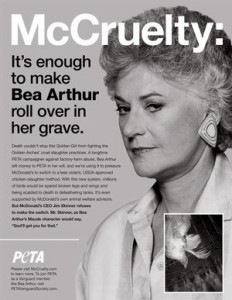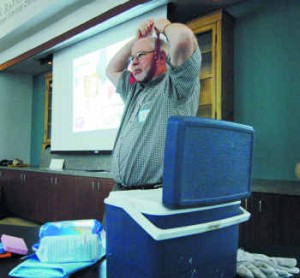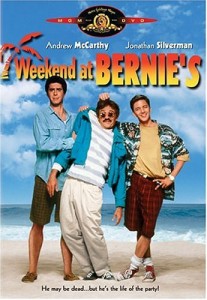High Court: Justices to Consider ‘Funeral Protests’ in Free-Speech Case
Robert Barnes, Washington Post (May 31, 2010)
The Washington Post ran a really interesting article today on an upcoming US Supreme Court case involving freedom of speech and protests at funerals for dead soldiers. I expect that the story ran today because it is, afterall, Memorial Day and a good time to reflect on freedoms, liberties, and the people who died while in the US military. The Supreme Court is being asked to decide whether or not the Westboro Baptist Church, run by Fred Phelps, has a right to protest near soldiers’ funerals. What makes this case particularly complex is that the WBC protesters (which are never more than a handful) hold signs proclaiming their thanks for dead soldiers since God is punishing America for condoning homosexuality.

For years, the WBC has protested at all kinds of funerals under the “God Hates Fags” banner but it has really only been the soldiers’ funerals which drew the most ire. We’ve been covering this particular legal case on Death Ref and you can read those posts here: Father of Dead Soldier Ordered to Pay Up and “Thank God for Dead Soldiers”.
The case’s most provocative legal question is this: Will a majority of the US Supreme Court rule in favor of the Westboro Baptist Church, even though its tactics are almost universally despised? What are the limits of free speech in this situation? Can Albert Snyder (the father of dead Marine Matthew Snyder) sue the Westboro Baptist Church in order to stop its protest activities without violating the first Amendment to the US Constitution?
Robert Barnes, the reporter at the Washington Post explains:
…First Amendment specialists think Albert Snyder has a difficult case to prove to a court that has been particularly outspoken on government attempts to regulate speech and has accepted two privacy cases for the term that begins in the fall.
George Washington University law professor Daniel J. Solove, the author of “Understanding Privacy,” said he finds it “perplexing” that the justices took the case. The message of Phelps and his followers is “stupid and obnoxious,” Solove said, but seems to fit squarely into the kind of unpopular speech that the Constitution protects.
The church maintains that its protests are not aimed at the dead — there was no particular reason to select Matthew Snyder’s funeral for picketing — but at the actions of the living.
A sampling of the signs carried at Snyder’s 2006 funeral at St. John’s Catholic Church in Westminster, Md., included “God Hates the USA/Thank God for 9/11,” “Semper Fi Fags,” “Thank God for Dead Soldiers” and “Priests Rape Boys.” The demonstrators abided by the law and stayed away from the funeral itself.
Albert Snyder sued Phelps, and Snyder argued at trial that the demonstration invaded his privacy, caused emotional distress and violated his rights to free exercise of religion and peaceful assembly. He said a treatise posted on the church’s Web site specifically mentioned Matthew and his family.
A jury awarded Snyder more than $10 million, which was cut in half by the judge and then overturned by the U.S. Court of Appeals for the 4th Circuit in Richmond. A three-judge panel said that although Phelps’s rhetoric was offensive, it was protected as speech concerning issues in the national debate.
The politics of this case are also compelling. A number of both conservative and liberal elected officials have joined together in support of the military families while simultaneously passing laws in about 40 US states banning (or severely curtailing) protests by the WBC. On the one hand, this is not particularly shocking. On the other hand, social conservatives do not necessarily disagree with the WBC’s anti-gay rhetoric and liberals have historically made the case for unpopular, protest speech.
And no matter where the WBC protests, the counter protests are usually much larger. Indeed, a Veterans motorcycle group called the Patriot Guard Riders attends soldiers’ funerals (but only if invited by the family) so that the next of kin is insulated from the protests. In the middle of all this is a funeral director trying to negotiate this moment in American cultural politics but then that’s nothing new.
So the questions remains open: What are the limits of free speech in this situation?
I think that it is also inevitable that this case will end up in the election politics of the autumn, which is too bad because the questions being raised are really important and not easily decided.
Sadly, it is the soldiers’ families who get caught up in the middle of this and at the end of the day I have a feeling that the impact on next of kin at the funerals will carry a great of weight with the Supreme Court.
As the Washington Post puts it:
Snyder said he was only vaguely aware of the protests at military funerals until the protest came to him. He still gets emotional recalling that day.
“All we wanted was a private funeral for my son,” he said. “They turned it into a three-ring circus.”







